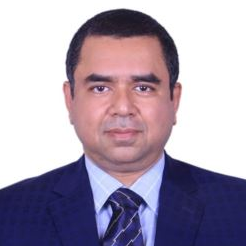Data-Driven Approaches Regarding Dynamic Modelling, Diagnostics and Prognostics of Complex Mechanical Structures
A special issue of Machines (ISSN 2075-1702). This special issue belongs to the section "Machines Testing and Maintenance".
Deadline for manuscript submissions: 30 November 2024 | Viewed by 115
Special Issue Editors
Interests: predictive maintenance; digital twin; signal processing; machine learning; system reliability analysis; remaining useful life prediction; time–frequency analysis
Special Issues, Collections and Topics in MDPI journals
Interests: adaptive and time varying systems; stochastic signals and systems; structural health monitoring; structural mechanics and dynamics; random vibrations
Interests: stress analysis and testing of composite material structures; intelligent structural design; structural health monitoring
Interests: smart machining; green engineering; condition monitoring; artificial intelligence; optimization; finite element analysis
Interests: information fusion; digital twin technology; structural health monitoring; fault diagnosis and prognosis; system reliability analysis; dynamic modelling of mechanical systems
Special Issues, Collections and Topics in MDPI journals
Special Issue Information
Dear Colleagues,
With the advancement of big data and industry 4.0-related technologies, data-driven approaches have gained significant attention among researchers from the area of the health management of complex mechanical structures. Data collected from these complex mechanical structures are a source of important information regarding the health condition of a particular structure. As a result, the collected data can not only be utilised to perform the modelling of the health status of that structure but also be used to diagnose different types of damage in a structure. Additionally, data-driven prognosis operation can be used to detect damage at the earliest point of inception, track the growth of the incepted damage, and predict the remaining useful life of the structure under analysis. By making full use of the data-driven approaches, the decision maker can not only identify the problem of mechanical structures in a convenient manner but also perform necessary maintenance actions prior to failure of the structure under consideration. In this context, data-driven approaches have emerged as some of the key enablers in improving safety, increasing operational reliability and mission availability, decreasing unnecessary maintenance actions, and reducing system life-cycle costs. All these aspects have made data-driven technologies a research hotspot for a variety of application areas corresponding to structural health management including transportation, aviation, aerospace, manufacturing, mining, railways, renewable energy generation, and so on.
Considering the diverse and considerable state-of-the-art research status and related prospects of the data-driven approaches with regard to modelling the complex structural health condition, performing diagnosis operation on the faulty complex structure, and conducting prognostic operation to identify the failure event as well as the corresponding future degradation phenomenon, this Special Issue aims to invite researchers from all aspects of the health management of complex mechanical structures to submit their work. Potential topics related to the health management of complex mechanical structures include but are not limited to the following:
- Digital twin technology;
- Condition monitoring;
- Fault diagnosis;
- Early fault detection;
- Fault severity analysis;
- Remaining useful life prediction;
- Dynamic modelling;
- Signal processing algorithms;
- Applied machine learning;
- Deep learning techniques;
- Structural health monitoring;
- Information fusion;
- Advanced sensing techniques;
- Dimensionality reduction;
- Feature extraction.
Dr. Khandaker Noman
Dr. Shabbir Ahmed
Dr. Yang Yu
Prof. Dr. Anayet U. Patwari
Prof. Dr. Yongbo Li
Guest Editors
Manuscript Submission Information
Manuscripts should be submitted online at www.mdpi.com by registering and logging in to this website. Once you are registered, click here to go to the submission form. Manuscripts can be submitted until the deadline. All submissions that pass pre-check are peer-reviewed. Accepted papers will be published continuously in the journal (as soon as accepted) and will be listed together on the special issue website. Research articles, review articles as well as short communications are invited. For planned papers, a title and short abstract (about 100 words) can be sent to the Editorial Office for announcement on this website.
Submitted manuscripts should not have been published previously, nor be under consideration for publication elsewhere (except conference proceedings papers). All manuscripts are thoroughly refereed through a single-blind peer-review process. A guide for authors and other relevant information for submission of manuscripts is available on the Instructions for Authors page. Machines is an international peer-reviewed open access monthly journal published by MDPI.
Please visit the Instructions for Authors page before submitting a manuscript. The Article Processing Charge (APC) for publication in this open access journal is 2400 CHF (Swiss Francs). Submitted papers should be well formatted and use good English. Authors may use MDPI's English editing service prior to publication or during author revisions.









